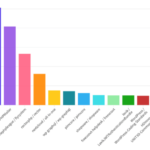Understanding the Role of a PHP Web Developer
When it comes to building a dynamic, robust, and user-friendly website, a PHP web developer plays a pivotal role. But what exactly is PHP, and why is it so important? And what does a PHP developer do? Let’s dive in to understand better.
In a Nutshell
- PHP is a popular web development language that allows for dynamic, interactive websites. Skilled PHP developers are invaluable for building robust, user-friendly sites.
- PHP developers handle server-side logic, integrate databases, test sites, debug issues, maintain and optimize performance. Their responsibilities depend on the project needs.
- Important to identify the right type of PHP developer – full stack, back end, or CMS-focused – based on your project’s requirements.
- Effective collaboration requires clear communication, setting expectations, providing feedback. Leverage their expertise in PHP, problem-solving skills and creativity.
- Challenges include finding the right developer match, managing remote work/time zones, ensuring continuity. Overcome via careful planning, open communication, project management tools.
What is PHP and Why It Matters
PHP is a popular scripting language designed specifically for web development. It allows for dynamic content and interactive features on your website, enhancing the user experience and functionality. PHP is widely used due to its versatility and compatibility with many operating systems and web servers.
As a CEO, you might wonder, why does PHP matter to you? It’s simple. PHP can help your website become more interactive, user-friendly, and effective. When skillfully used by a PHP web developer, it can significantly boost your website’s performance, increase engagement, and ultimately lead to higher conversions.
The Job of a PHP Web Developer
A PHP web developer is a professional programmer who specializes in PHP coding. They are responsible for creating, testing, and maintaining the server-side logic of a website. This includes everything from the website’s core functionality to its integration with front-end elements.
The responsibilities of a PHP web developer can vary depending on the specific requirements of your project. They can work on creating brand new websites from scratch, adding new features to an existing website, or maintaining and optimizing a current website for better performance.
Here’s a brief overview of what a PHP web developer does:
- Design and Development: The PHP web developer designs the website structure and develops server-side logic using PHP. They ensure the website’s backend functionality aligns with the front-end design and user experience.
- Integration: They integrate the server-side logic with the front-end elements of the website. They also ensure seamless integration with databases and other technologies used.
- Testing and Debugging: PHP web developers thoroughly test the website to identify any issues or bugs. They then debug these issues to ensure the website runs smoothly.
- Maintenance and Optimization: They regularly maintain and optimize the website to ensure its optimal performance. This includes updating the website as needed, improving its speed and efficiency, and making sure it remains secure and user-friendly.
Depending on your business needs, you may choose to work with a full stack php developer, a php software developer, or a php application developer. You might even consider hiring a php freelance developer or a php remote developer for more flexibility.
Understanding the role of a PHP web developer is the first step towards successfully collaborating with one. It can help you set clear expectations, communicate effectively, and ensure your website development project is a success.
Identifying the Right PHP Developer for Your Needs

When it comes to hiring a PHP web developer, it’s crucial to identify what kind of developer you need for your project. Depending on the scope and requirements of your project, you may require a full stack PHP developer, a backend PHP developer, or a CMS PHP developer. Let’s understand each type in detail.
Full Stack PHP Developers
A full stack PHP developer is proficient in both front-end and back-end development. They have a broad range of skills and can handle all aspects of web development – from creating user interfaces to managing databases and servers. This is particularly useful for small projects or startups, where a single developer can handle the entire web development process.
A full stack PHP developer can provide a holistic approach to your project, ensuring that all components of your website or web application are seamlessly integrated and function as a cohesive whole. This removes the need for coordination between different specialists, saving you time and effort.
For more information on the role and benefits of a full stack PHP developer, you can refer to our article on the full stack php developer.
Backend PHP Developers
When your project involves complex server-side programming and database management, a backend PHP developer is the right choice. These developers specialize in PHP and related server-side technologies. They ensure that your website or web application functions smoothly by managing data storage, server logic, and any necessary integrations.
By hiring a back-end PHP developer, you ensure your project benefits from their specialized knowledge and expertise in server-side programming, which can lead to more efficient and secure web applications.
For more about the role of a backend developer and how they can benefit your project, check out our article on the php software developer.
CMS PHP Developers
If your project involves a Content Management System (CMS), such as WordPress or Joomla, a CMS PHP developer can be the right choice. These developers specialize in building and customizing CMS-based websites. They can create custom themes and plugins, and ensure that your CMS website is easy to manage and update.
By collaborating with a CMS PHP developer, you can reap the benefits of a CMS – easy content management and updates, while having a website customized to your unique needs and preferences.
For more insights on the role of a CMS PHP developer, you can refer to our php application developer article.
In conclusion, identifying the right type of PHP developer for your project can make a significant difference in the success of your project. By understanding these different types of PHP developers and their areas of expertise, you can make an informed decision that aligns with your project requirements and business goals.
Collaboration: The Key to a Successful Project
When collaborating with a PHP web developer, the key to a successful project lies in effective communication, setting clear expectations, and providing ongoing feedback.
Effective Communication with Your PHP Web Developer
Communication is the backbone of any successful collaboration. When working with a PHP developer, it’s important to establish clear lines of communication from the outset. This means being open, transparent, and responsive.
You should discuss your preferred communication channels, whether via email, phone calls, video conferencing, or an online project management tool. Regular check-ins can also ensure that the project stays on track. And always remember, the relationship with your PHP developer should be a two-way street; they should feel comfortable bringing their ideas, concerns, and questions to you.
Setting Clear Expectations and Goals
Just as crucial is setting clear expectations and goals. Your PHP web developer is an expert in their field, but they are not mind readers. It’s up to you to articulate your vision, your objectives, and your deliverables.
Create a detailed project brief outlining the scope of the project, the desired functionality, and the timeline. Be specific about what you want but also be open to suggestions from your developer. Their technical expertise and experience can provide valuable insights that can enhance your project.
Ongoing Feedback and Adjustments
Finally, the collaboration process doesn’t end once the project kicks off. Providing ongoing feedback is essential for ensuring the project aligns with your vision. Regularly review progress with your developer, offering constructive feedback and making necessary adjustments.
Remember, it’s normal for a project to evolve over time. Flexibility is key, and adjustments can be made based on feedback, testing, and changing business needs. This iterative process can ultimately lead to a better final product.
By prioritizing effective communication, setting clear goals, and providing ongoing feedback, you can ensure a successful collaboration with your PHP web developer. Whether you’re working with a php freelance developer, a full stack php developer, or a php software developer, these principles remain the same. They can help you navigate the collaboration process, maximize productivity, and ultimately achieve your business goals.
Maximizing the Benefits of Working with a PHP Web Developer
As a CEO, you’re always looking for ways to leverage resources and maximize benefits. Collaborating with a PHP web developer is no different. You can gain a lot from their technical expertise, problem-solving skills, and creativity, all of which can contribute significantly to your business goals.
Leveraging their Technical Expertise
The technical know-how of a PHP web developer can be a game-changer for your business. They have an in-depth understanding of PHP, one of the most powerful scripting languages. They also know how to utilize PHP to create dynamic and interactive web pages, thereby enhancing your website’s functionality and user experience.
Additionally, a PHP developer has the necessary skills to integrate various databases with PHP, ensuring efficient data management. They can also handle server-side scripting, allowing your website to function seamlessly.
To fully leverage their expertise, you need to have an open communication line with your PHP developer. This way, they can understand your business needs and tailor their technical solutions accordingly.
Benefiting from their Problem-Solving Skills

PHP web developers are not just coders; they are problem solvers. They can identify potential issues in your website’s functionality and come up with efficient solutions to fix them. They can also foresee future problems and take preventive measures.
Their problem-solving skills go beyond technical issues. They can also help you address business problems. For instance, if your website is not generating enough traffic, a PHP web developer can analyze the issue and suggest improvements to enhance your website’s visibility and user engagement.
Harnessing their Creativity for Your Business Goals
Despite the technical nature of their job, PHP developers are creative individuals. They can think outside the box and come up with innovative ways to improve your website. They can create unique, user-friendly interfaces that not only look good but also provide an enjoyable user experience.
By harnessing their creativity, you can make your website stand out from the competition. You can offer your users something unique and compelling, which can help attract more visitors and convert them into customers.
Working with a PHP web developer can offer you numerous benefits. However, it’s essential to choose the right developer who aligns with your business needs and goals. Whether you need a full stack PHP developer, a PHP application developer, or a PHP remote developer, make sure to do your due diligence before making a decision. By doing so, you can ensure a successful collaboration and maximize the benefits of working with a PHP web developer.
Common Challenges and How to Overcome Them

While working with a PHP web developer can take your business to new heights, it’s not without its challenges. However, understanding these potential hurdles and knowing how to overcome them will ensure a successful collaboration.
Finding the Right Match
Choosing the right PHP web developer is paramount. Their expertise needs to align with your specific project requirements to ensure they can deliver the best results. You might be looking for a full stack PHP developer or perhaps a PHP freelance developer, depending on the scope and nature of your project.
To overcome this challenge, start by clearly defining your project needs. Be sure to consider the complexity of the project, the necessary technical skills, and the level of experience required. Once you know what you’re looking for, you can then focus on finding a PHP developer who meets those specific criteria.
Managing Time Zones and Remote Work
In today’s digital age, finding the right PHP developer might mean extending your search beyond your local area. Working with a PHP remote developer can bring a wealth of talent and expertise to your project. However, it can also introduce challenges related to time zones and remote work management.
To manage these issues, make use of project management tools that allow for real-time communication and collaboration. Schedule regular check-ins to monitor progress and address any concerns promptly. It’s also important to be flexible and understanding about the different time zones, finding a balance that works for both parties.
Ensuring Project Continuity and Consistency
When collaborating with a PHP web developer, maintaining continuity and consistency throughout the project is crucial. This is particularly important if you’re working with a PHP application developer or a PHP software developer, where the quality and consistency of the code directly impact the performance of your application or software.
To ensure project continuity, establish clear lines of communication from the start. Make certain your developer understands the project goals and expectations. Consider using version control systems to track and manage changes to the project code. Regularly review progress and provide feedback to ensure the project stays on track.
By being aware of these common challenges and having strategies in place to manage them, you can foster a successful collaboration with your PHP web developer. Remember, the key to overcoming these challenges lies in clear communication, careful planning, and mutual respect.
The Bottom Line
The bottom line – PHP developers are critical for building dynamic, high-performing websites. Identify the right type of developer for your needs, collaborate effectively by communicating clearly and setting expectations, and leverage their technical skills and creativity to maximize benefits.
Overcome challenges like finding the ideal match and managing remote work through thoughtful planning and open channels.
FAQs

What are some key differences between PHP 7 and older versions?
PHP 7 was a major release that provided significant improvements in performance, security, and coding best practices. Some key differences include:
- Performance – PHP 7 is nearly twice as fast as PHP 5.6 due to the refactored Zend engine. This improved performance helps in building more responsive applications.
- Error handling – PHP 7 introduces new exceptions for easier and more consistent error handling using
try/catchblocks.
try {
// Code that may throw an exception
}
catch (Exception $e) {
// Handle exception
}- Typing – PHP 7 introduces scalar and return type declarations for stronger variable typing. This catches more errors during development.
function sum(int $a, int $b) {
return $a + $b;
}- Security – PHP 7 disables risky functionality by default and uses improved password hashing like
password_hash(). This makes applications more secure.
How can PHP be used for machine learning projects?
While not the first choice for machine learning, PHP can be used for building machine learning apps by leveraging PHP extensions:
- PHP-ML – Provides machine learning algorithms like classification, regression and clustering. Allows building models using PHP code.
$svc = new SupportVectorClassifier();
$svc->train($dataset);
$result = $svc->predict($input);- TensorFlow PHP – Runs TensorFlow models for deep learning in PHP apps. Useful for integrating Python TensorFlow models.
- PHP-AI – Provides PHP bindings for Python libraries like NumPy and SciPy for data analysis.
So while Python is more popular, with these PHP extensions you can utilize machine learning within PHP apps.
What are some best practices for writing secure PHP code?
Some top security best practices include:
- Validate and sanitize all user input data
- Use prepared statements for SQL queries to prevent SQL injection
- Hash passwords using
password_hash()instead of MD5/SHA1 - Start sessions using
session_start()only on pages that require it - Avoid using predictable session IDs, use session regeneration instead
- Enable CORS restrictions to prevent cross-site scripting
- Store configuration settings outside the web root
- Use HTTPS for all pages and enable HTTP Strict Transport Security
Following security best practices is critical when writing PHP code to prevent common vulnerabilities like code injection or data breaches.
How can PHP be used for IoT applications?
PHP can be a useful language for IoT applications due to its portability and several IoT focused extensions:
- Implement REST APIs for device communication using Slim PHP
- Access GPIO pins and boards like Raspberry Pi using PHP GPIO extension
- Interface with Arduino boards using Firmata protocol extension
- Send sensor data to cloud platforms like AWS IoT using IoT SDKs
- Control IoT devices by integrating with IFTTT using webhooks
- Build real-time dashboards to visualize IoT data using WebSockets
For example, you can use PHP to collect temperature data from a sensor, implement an API to expose the data, and integrate with a cloud dashboard to view real-time graphs.
What are some alternatives to PHP worth considering?
While PHP is a robust language, some alternatives worth considering include:
- Node.js – Great for real-time applications using WebSockets. High scalability.
- Python – Excellent for machine learning and AI-based applications. Easy to learn.
- Ruby on Rails – A very rapid and developer-friendly full-stack framework.
- ASP.NET – A popular and powerful framework for building enterprise-grade web apps.
- Go – Compiles to standalone binary executable. Excellent performance.
The choice depends on your specific project requirements and developer skills. But evaluating alternatives can help choose the most appropriate language and technology stack.
Ashley is an esteemed technical author specializing in scientific computer science. With a distinguished background as a developer and team manager at Deloit and Cognizant Group, they have showcased exceptional leadership skills and technical expertise in delivering successful projects.
As a technical author, Ashley remains committed to staying at the forefront of emerging technologies and driving innovation in scientific computer science. Their expertise in PHP web development, coupled with their experience as a developer and team manager, positions them as a valuable resource for professionals seeking guidance and best practices. With each publication, Ashley strives to empower readers, inspire creativity, and propel the field of scientific computer science forward.



![How to use Cursor AI to write PHP Code[Example]](https://hirephpdeveloper.dev/wp-content/uploads/2025/03/How-to-use-Cursor-AI-to-write-PHP-Code-1-150x150.png)



